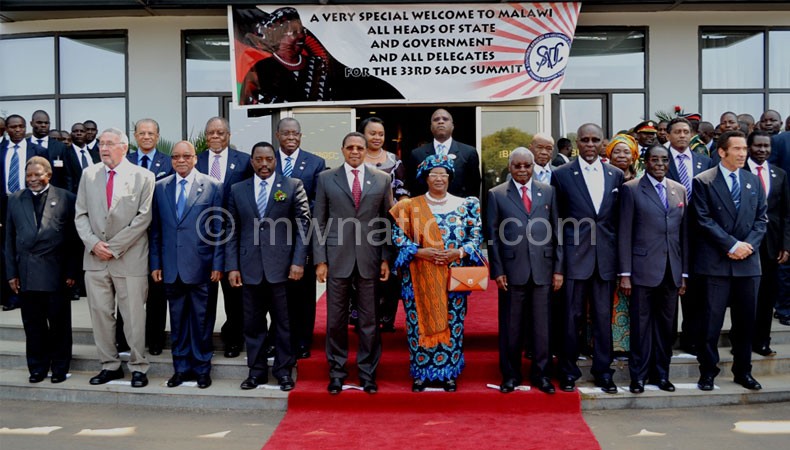‘Malawi not making use of Sadc’

Programme manager for of GIZ ProGress Christian Peters says Malawi has not made full use of opportunities offered by Southern African Development Community (Sadc) due to among other things lack of insufficient information and lack of complete knowledge about Sadc, how it functions and which opportunities regional integration has to offer.
Speaking during the opening of a four-day training course on Sadc Regional Integration in Lilongwe on Monday, Peters said Malawi has not been assertive in its approach to issues related with Sadc.
GIZ ProGress is a programme supporting the institution building process both at the Sadc secretariat and for Sadc structures in the member States.
Said Peters: “When I worked in Malawi disaster struck in 2003 when two of the four turbines at the Kapichira Hydropower plant were damaged and the country spent the next three months load shedding and as a consequence the country lost about two percent of its GDP. Unlike its neighbours, Malawi had not yet connected to the southern African Power pool (SAPP) which could have been able to supply the country with power and hence no load shedding.”
Peters said it was not his role to blame anybody but eleven years later the country is still not yet connected and as things are it is still not prepared for any new problems with its power generating capacity.
Peters said there are many good examples of what regional integration through Sadc can do to a country like Malawi.
He gave the example of a small Namibian company selling very well made mosquito nets in Namibia made out of imported duty free materials from Zimbabwe, a thing which has been made possible because of the Sadc Free Trade Zone which became effective recently and led to the internal duties falling away.
Peters also advised Malawi to sort out problems on the borders by setting up one stop borders posts so that travelers and traders are not inconvenienced.
“Issues to do with border posts should receive utmost attention because most travellers and traders stay for over three hours clearing their goods and yet with one stop border posts then these problems could be easily dealt with,’ said Peters.
Secretary of Foreign Affairs and International Cooperation George Mkondiwa agreed with Peters that there are some challenges related to the process of regional integration in the Sadc region.
According to Mkondiwa, the commonly known denominator is the issue of multiple memberships as some Sadc members belong to more than one regional organisation.
Said Mkondiwa: “The biggest challenge for member States is the implementation of obligations from two or three regional organisations, such as Sadc, Comesa, or the East African Commission (Eac). It is imperative that Malawi as a country must benefit from projects in Sadc and I admit that we lost out because of our delays to be interconnected as this led to underproduction.”
He said as one way of solving duplication of roles among the three regional bodies—Sadc, Comesa and EAC— launched comprehensive negotiations in Johannesburg in June 2011 aimed at establishing a Sadc,Comesa,EAC Tripartite Free Trade Area.
On the objectives of the training Mkondiwa reaffirmed Malawi’s commitment to the goals and objectives of Sadc that are aimed at deepening regional integration and cooperation with a view to accelerate poverty eradication and improving economic equality among members States.





